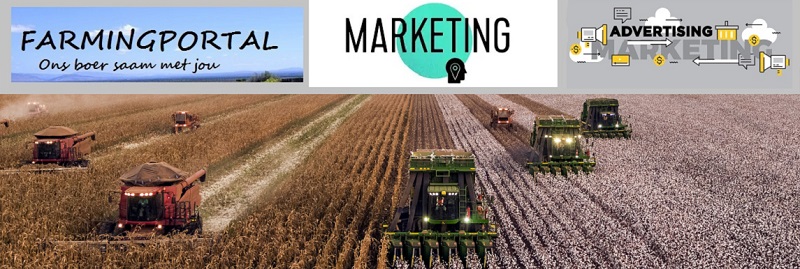Over 70 countries around the globe will hold elections this year in what will be a huge test for democracy with implications for policy, geopolitics and ultimately businesses. South Africa is one of these countries, with its national and provincial elections due to take place this year.
During this period, leaders of the various political parties that will be contesting for power outline their manifestos, speaking to the various challenges across society, economy as well as other areas and how they plan to address these challenges.
South Africa focus
Given the history of this country, it is commonplace for political parties to include land and agricultural policies in their election manifestos and promises. This year’s elections come when the agricultural sector faces serious challenges, thus offering an opportunity to hear whether the political leaders or various parties’ manifestos will speak to the pressing challenges of the sector.
The most pressing issues, according to the Agbiz/IDC Agribusiness Confidence Index results for the fourth quarter of 2023 include intensified delays and inefficiencies at the ports, rising crime, deteriorating rail and road infrastructure, worsening municipal service delivery, rising protectionism in key export markets, increased geopolitical uncertainty and persistent episodes of load-shedding. The slow process of launching the Land Reform Agency adds to this long list of sector challenges. This means that the over two million hectares of state land that should have been released to black beneficiaries remain unutilised, undermining not only the sector’s growth but also its transformation and inclusivity.
Some of the challenges mentioned above are beyond South Africans’ control, but the majority are within South African’s control. Hence, ahead of the elections and as manifestos are unveiled, it will be interesting to hear if these issues are raised by the various political parties and what policy actions are proposed to deal with them. We believe that if these challenges that farmers raise are addressed, the sector will unlock its long-term growth potential and increase employment opportunities.
The South African agricultural sector has done reasonably well over the past three decades, having doubled in value and volume terms. The exports reached record levels of US$12,8 billion in 2022, with employment also at the highest levels since the early 1990s, at 956 000 in the third quarter of 2023. The country has also improved its food security conditions, ranked 59th out of 113 countries in The Economist‘s Global Food Security Index, making it the most food secure in sub-Saharan Africa and reflecting the increase in agricultural output.
Still, the aforementioned growth-constraining factors weigh on sentiment in the sector and could undermine investment and long-run growth prospects if they are not properly addressed. For example, in the last quarter of 2023, the Agbiz/IDC Agribusiness Confidence Index deteriorated by 10 points to 40. This is its lowest level since the second quarter of 2020, at the height of the Covid-19 pandemic hard lockdown restrictions. The fourth quarter results of the 2023 reading of the Agribusiness Confidence Index are below the neutral 50-point mark, implying that South African agribusinesses are downbeat about business conditions in the country.
Thus, we have long argued that the government and private sector should collaboratively work to resolve these constraints to attract investments and boost long-term growth. The roadmap for addressing these challenges and generally growing the sector had long been outlined in Chapter Six of the National Development Plan in 2012 and, most recently, in the Agriculture and Agro-processing Master Plan. While both plans received broad sectoral support, implementation has proved challenging.
Therefore, ahead of the elections, the sector should look not only to pronouncements of the challenges above but also implementation plans. Ultimately, improvements in local governance, delivery of services, maintenance of roads, and release of land for new entrant farmers are essential for the growth of South Africa’s agriculture. Nationally, focus ought to remain on opening export markets, addressing logistics at ports, dealing with crop and animal disease, and embracing new technology by registering new agrochemicals and genetics, essential for boosting productivity. An agile decision-making environment would also be critical, particularly given the fast evolving nature of global and domestic risks.
Concluding remarks
Overall, we are optimistic that the sector will not face confidence-sapping destructive rhetoric this year as in the past elections when there were talks of expropriation without compensation. The conversation will likely be more focused and would help if it touches on the real issues of the sector outlined in this note. These aspects are not only ideas for agriculture and agribusinesses, but addressing them would also mean dealing head on with rural economic and low employment challenges. The next few months will be busy, but thankfully, the production conditions are favourable for the sector in the near term. Had they been negative, that would have taken attention away from the underlying challenges of the sector as leaders try to focus on near-term issues.















